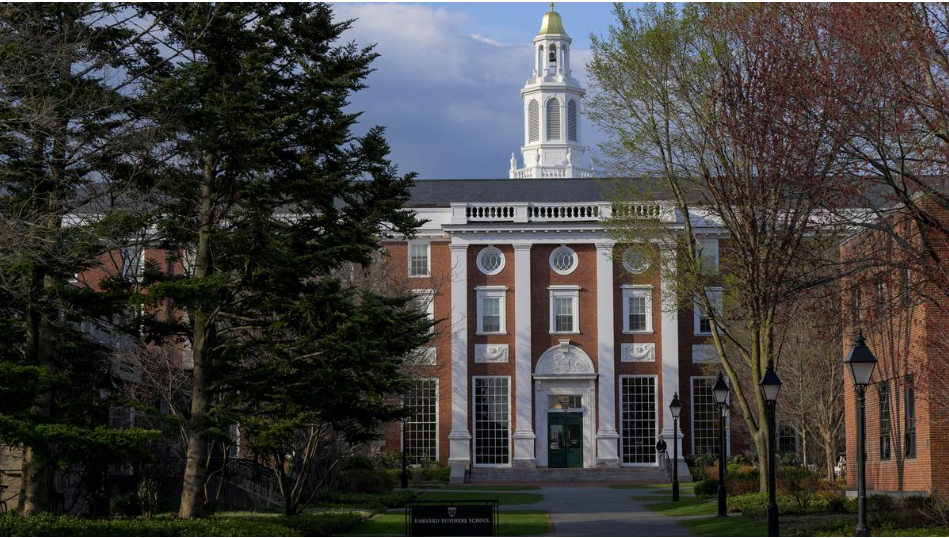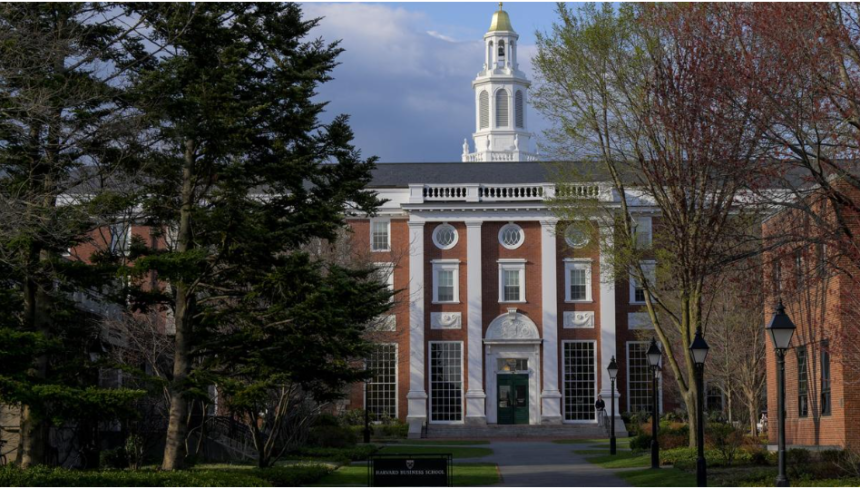1. Introduction: A Legal Battle of Historic Proportions
Harvard Sues Trump Administration a move that has sent shockwaves across the academic and legal communities, Harvard University has filed a federal lawsuit against the Trump administration following the controversial freeze of over $2 billion in federal research and educational grants. The university alleges that the administration’s actions are politically motivated and constitute a violation of Harvard’s First Amendment rights, as well as federal statutes such as Title VI of the Civil Rights Act of 1964.
Filed in the U.S. District Court for the District of Massachusetts, the lawsuit not only challenges the legality of the funding freeze but also sets the stage for a broader debate over the politicization of federal grants and the rights of academic institutions in a democratic society.
2. Background: The Funding Freeze and Its Fallout
The roots of the conflict lie in a directive issued in the final months of the Trump administration, effectively freezing federal grants and contracts for certain universities allegedly “noncompliant” with federal non-discrimination laws or accused of harboring bias against specific groups, including conservative students and Israeli academics.
Harvard, one of the most prestigious institutions globally, found itself at the center of this directive. The Trump administration claimed that Harvard’s programs and public statements reflected a pattern of “systemic ideological discrimination,” accusations the university vehemently denies.
As a result of the freeze, approximately $2 billion in current and future grants — including those for medical research, climate studies, and technological innovation — have been suspended or withheld pending review.  For the more information click on this link
For the more information click on this link
3. Harvard’s Legal Argument: First Amendment and Title VI
In its 67-page complaint, Harvard University presents a multi-pronged legal case, emphasizing two core violations:
A. First Amendment Infringement
Harvard argues that the Trump administration’s actions amount to unconstitutional retaliation for its protected speech. The university asserts that it has the right to express institutional opinions on social justice, diversity, Harvard Sues Trump Administration and inclusion without fear of government reprisal.
The complaint reads:
“The federal government cannot condition the receipt of research grants on the suppression of viewpoints or the endorsement of political ideology.”
B. Title VI of the Civil Rights Act of 1964
Title VI prohibits discrimination on the basis of race, color, or national origin in programs and activities receiving federal financial assistance. Harvard contends that the grant freeze was selectively enforced, Harvard Sues Trump Administration targeting institutions perceived as liberal or critical of government policy, while sparing others with similar conduct but differing ideological leanings.
4. Immediate Impact on Research and Innovation
The funding freeze has already begun to disrupt numerous high-impact research projects at Harvard. Among those affected:
-
Medical Trials: A major NIH-funded trial focused on Alzheimer’s treatment has been paused.
-
Climate Science: Collaborative work with MIT and NOAA on climate modeling has been halted.
-
Pandemic Research: Ongoing studies on vaccine efficiency and virus mutation tracking, critical post-COVID, have seen budgetary restrictions.
Dr. Ananya Patel, lead researcher in biomedical engineering at Harvard Medical School, lamented:
“Science thrives on continuity. This sudden loss of funding halts progress, dissolves teams, and wastes years of groundwork.”
5. Reaction from the Academic Community
Harvard’s decision to take legal action has sparked strong reactions across U.S. academia. Dozens of institutions, including Yale, Stanford, and UC Berkeley, Harvard Sues Trump Administration have issued public statements in support of Harvard’s lawsuit.
The American Association of Universities (AAU) condemned the funding freeze as “an authoritarian overreach that undermines the very principles of academic freedom and evidence-based research.”
Moreover, student groups and faculty unions have staged peaceful protests on campuses across the nation, Harvard Sues Trump Administration calling for the immediate reinstatement of all blocked federal grants.
6. The Trump Administration’s Defense
In response to the lawsuit, Harvard Sues Trump Administration former Trump administration officials have defended the funding freeze as a lawful measure to ensure that taxpayer dollars are not used to support what they call “ideologically biased institutions.”
A spokesperson from the former Office of Management and Budget (OMB) stated:
“This was not an act of censorship. It was a policy decision aimed at enforcing accountability, transparency, and the proper use of federal funds.”
Some conservative think tanks, such as The Heritage Foundation, have also backed the freeze, Harvard Sues Trump Administration claiming that elite universities have become “echo chambers hostile to free expression and open inquiry.”
7. Constitutional Experts Weigh In
Legal scholars are divided on the lawsuit’s potential outcome. Professor Laurence Tribe of Harvard Law School believes the university has a strong case:
“Government retaliation for speech, particularly political speech, is a classic First Amendment violation. The selective enforcement only strengthens Harvard’s position under equal protection doctrine.”
However, others suggest that the Trump administration may argue the freeze was based on policy concerns rather than speech, Harvard Sues Trump Administration a distinction that courts often struggle to delineate.
8. Title VI: A Battleground for Bias Accusations
Harvard’s invocation of Title VI raises critical questions about how civil rights laws should be applied in academic settings. The Trump-era Office for Civil Rights (OCR) had previously opened investigations into several Ivy League schools, accusing them of discriminatory practices against conservative students and Jewish organizations.
While many of these investigations have since been closed or dropped, the lawsuit argues that the pattern of enforcement reveals a politically motivated abuse of regulatory power, Harvard Sues Trump Administrationrather than a genuine attempt to uphold civil rights.
9. The Political Dimensions of the Case
The case arrives at a time when tensions between elite academic institutions and political forces — especially those on the right — are at an all-time high. With the upcoming presidential election looming, the lawsuit is expected to become a flashpoint in debates over free speech, academic independence, and “cancel culture.”
Former President Trump has hinted at using the issue on the campaign trail, Harvard Sues Trump Administration framing it as part of a larger battle against “woke indoctrination” in American education.
In contrast, Democratic lawmakers have praised Harvard’s courage in confronting what they see as an existential threat to educational liberty.
10. Broader Implications for Higher Education
The outcome of this case could have profound implications for all institutions of higher learning in the U.S. If Harvard prevails, it would reinforce constitutional protections for universities and limit the federal government’s ability to penalize institutions for ideological reasons.
Conversely, if the Trump administration’s position is upheld, Harvard Sues Trump Administration it could pave the way for future governments to tie grant funding to political compliance, threatening the principle of institutional neutrality.
11. Potential Timeline and Next Steps
Legal analysts predict that the case could take months, if not years, to resolve fully. In the short term, Harvard is seeking a preliminary injunction to lift the grant freeze while the case proceeds.
A hearing is scheduled for early next month, Harvard Sues Trump Administration where both parties will present arguments about whether an immediate halt to the freeze is warranted.
Depending on the ruling, the case could ascend to the U.S. Court of Appeals and eventually the Supreme Court, particularly given the constitutional dimensions involved.
12. Voices from Harvard: Faculty and Students Respond
Harvard President Claudine Gay said in a campus-wide address:
“We are not fighting for dollars alone. We are fighting for the soul of the American university.”
Graduate students, especially those in STEM fields whose projects depend on federal grants, have expressed both gratitude for the administration’s action and anxiety over their academic futures.
“I moved across the world to study here. Now my research and career are in limbo,” said Abhinav Iyer, a Ph.D. candidate in neuroscience.
13. International Repercussions
As a global leader in academic research, Harvard’s predicament has international ramifications. Collaborating institutions in Europe, Asia, Harvard Sues Trump Administration and Africa have expressed concern over the potential long-term disruption to joint projects.
The European Union’s Horizon Research Program released a statement calling the freeze “an impediment to international scientific cooperation.”
Chinese and Indian researchers Harvard Sues Trump Administration , who frequently partner with Harvard on technology and public health studies, worry that such politicization of science may soon affect other universities and grants worldwide.
14. A Crisis of Confidence in Research Funding?
At the heart of the issue lies a growing skepticism about the integrity of federal grant processes. If research funding can be frozen based on political interpretations of university values, many fear it will discourage bold, necessary research — particularly in sensitive areas like racial equity, climate change, and social justice.
Non-profit watchdogs, including the Union of Concerned Scientists, Harvard Sues Trump Administration argue that the freeze sends a chilling message: toe the political line, or lose your funding.
15. Conclusion: An Epic Legal Showdown Ahead
Harvard’s lawsuit against the Trump administration is more than a legal dispute over money. It is a confrontation between two visions of the role of higher education in American society. One sees universities as bastions of free thought, Harvard Sues Trump Administration independent of political pressure. The other demands ideological conformity in exchange for public support.
As the case unfolds, it will shape not only the future of Harvard’s research programs but also set a legal precedent that could impact every federally funded institution in the United States.
Whether the courts uphold Harvard’s claims or side with federal authority, one thing is certain — this lawsuit will be remembered as a landmark moment in the ongoing battle for academic freedom in the 21st century. ALSO READ:-Farewell to a Shepherd: Pope Francis Passes Away at 88, Burial to Be Held at Basilica of St. Mary Major 2025





